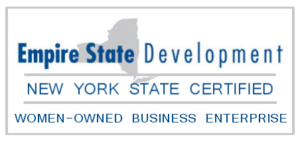
By: Leonardo Lampret, Associate Attorney
Workers’ Compensation Law § 14(5) acknowledges that younger workers typically earn lower wages than experienced adults in the same field. To address this, the statute allows for an adjustment to a claimant’s average weekly wage if they were under 25 at the time of injury and could reasonably expect wage growth. However, this adjustment is generally limited to cases involving permanent partial disabilities and does not extend to temporary disabilities. Mathis v. Clean Brite, 8 A.D.3d 694, 777 N.Y.S.2d 783 [2004].
Key Considerations for Future Wage Expectancy
- The Career Path Must Be Similar
- The anticipated wage increase must stem from natural career progression within the same or a closely related field of employment.
- In Lamiano v. J.R. Sousa & Sons, Inc. (158 A.D.2d 818, 820, 551 N.Y.S.2d 404, 405 [1990]), the court emphasized that the expected wage growth must be based on advancement in the same line of work the claimant was engaged in at the time of injury.
- Substantial Progress Towards Career Advancement Is Required
- A claimant cannot argue for a wage expectancy increase based on a speculative career trajectory.
- In Maw v. Wal-Mart (80 A.D.3d 921, 923, 914 N.Y.S.2d 442, 444–45 [2011]), the claimant argued that her future wages should be based on a professional dancer or choreographer’s salary instead of her current employment as a dance teacher. However, the court ruled against her because she had not taken substantial steps towards that career path (e.g., applying for jobs, securing an agent, or pursuing higher education in the field).
Handling Future Wage Expectancy Claims Effectively For Employers and Carriers
- Scrutinize Career Progression Claims: Demand concrete evidence showing the claimant had substantially progressed toward a higher-paying career before the injury occurred.
- Challenge Speculative Assertions: If a claimant has not demonstrated tangible steps toward career advancement, object to any attempt to project earnings based on a hypothetical career path.
- Focus on Industry Consistency: Insist that any wage expectancy adjustment be confined to wage growth within the same or a closely related occupation.
In summary, while Workers’ Compensation Law § 14(5) acknowledges potential wage growth for young workers, courts have consistently ruled that claimants must demonstrate real, tangible steps toward achieving higher earnings. Without substantial progress in the intended career path, any claim for a wage adjustment is likely to be denied.

